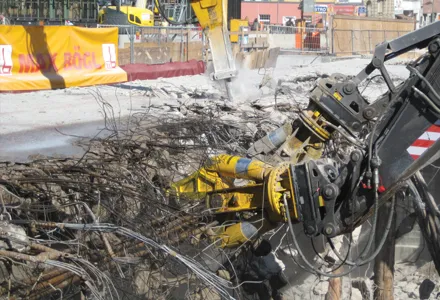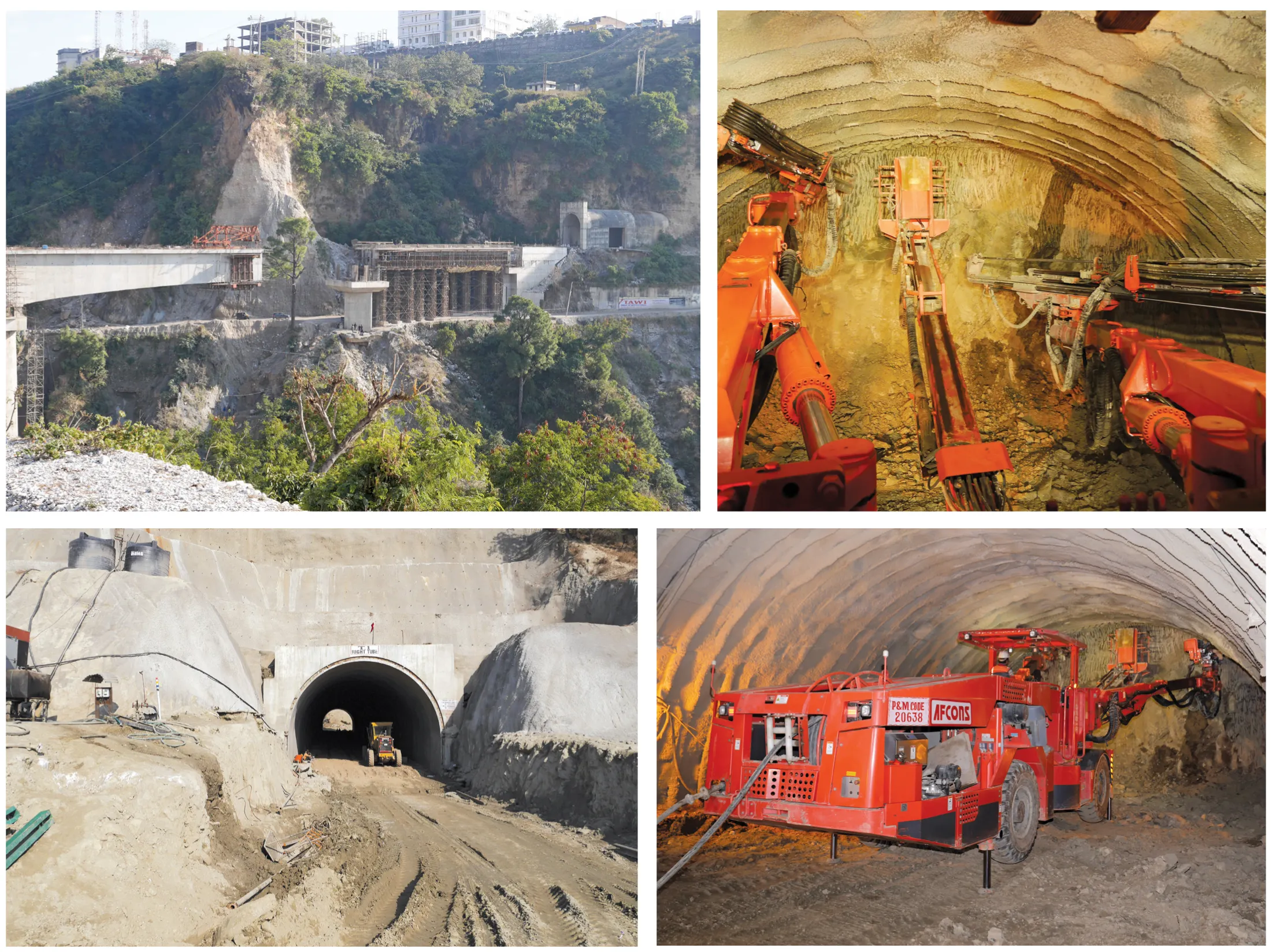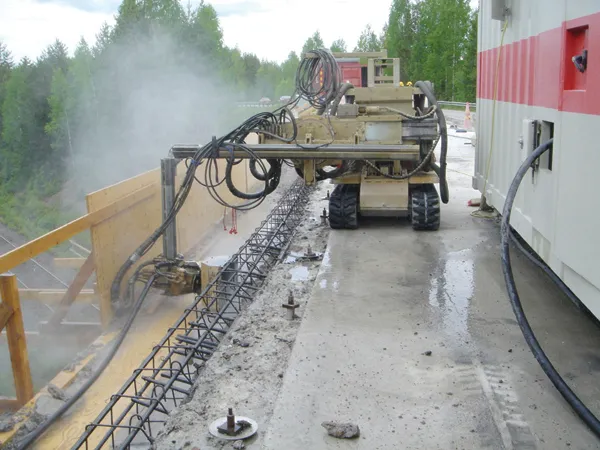DEMOLITION and blasting experts Philipp Halter of Berlin, Germany, faced a challenging job: in just 48 hours it had to demolish the southern section of the Spandau Dam Bridge crossing the A 100. The efficient interaction of Atlas Copco hydraulic breakers and hydraulic CombiCutters, mounted on seven Volvo excavators, is said to have played a crucial role after following a carefully planned schedule. During Friday night a bed of sand was placed under the bridge to allow the girders and reinforcements torn dow
March 2, 2012
Read time: 2 mins

DEMOLITION and blasting experts 1215 Philipp Halter of Berlin, Germany, faced a challenging job: in just 48 hours it had to demolish the southern section of the Spandau Dam Bridge crossing the A 100.
The efficient interaction of161 Atlas Copco hydraulic breakers and hydraulic CombiCutters, mounted on seven 2394 Volvo excavators, is said to have played a crucial role after following a carefully planned schedule. During Friday night a bed of sand was placed under the bridge to allow the girders and reinforcements torn down by the Atlas Copco CombiCutters to be safely collected
and transported.
Three283 MB 1700 hydraulic breakers (each weighing 1,700kg and suitable for carriers in the 19-32tonne weight class) began with preparations on the bridge foundations. An SB 302 was used for the less demanding preparatory and finishing work, such as in narrow places. The light hydraulic breaker weighs 304kg and is suitable for carriers in the 4.5-9tonne weight class.
The main part of the work was handled by two Atlas Copco hydraulic CombiCutters (a CC 1700 U and a CC 2500 U) equipped with 'Universal' jaws, which crushed the concrete and cut the strong rebar of the bridge in one go. The cutters weigh 1,680kg and 2640kg, respectively. The roadblocks were removed at 5am on Monday, according to schedule, making way for one of the most significant roadwork projects in the capital on the banks of the River Spree.
The efficient interaction of
and transported.
Three
The main part of the work was handled by two Atlas Copco hydraulic CombiCutters (a CC 1700 U and a CC 2500 U) equipped with 'Universal' jaws, which crushed the concrete and cut the strong rebar of the bridge in one go. The cutters weigh 1,680kg and 2640kg, respectively. The roadblocks were removed at 5am on Monday, according to schedule, making way for one of the most significant roadwork projects in the capital on the banks of the River Spree.







